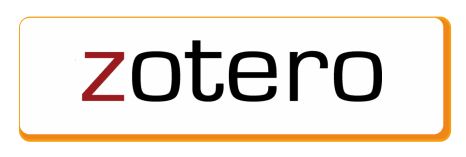Aspirasi Karier Generasi Milenial
 Abstract views: 3033
,
Abstract views: 3033
,
 PDF downloads: 2454
PDF downloads: 2454
Abstract
Penelitian ini bertujuan untuk mengeksplorasi data berupa deskripsi problematik terkait makna karier bagi generasi milenial khususnya di kawasan industri Gresik. Pada era ini, aspirasi karier masyarakat telah mengalami pergeseran paradigma. Pergeseran paradigma tersebut juga terjadi pada masyarakat industri yang memiliki kekhasan karakteristik yakni memiliki motivasi yang tinggi dalam mencapai kesejahteraan ekonomi. Hal tersebut dilatarbelakangi oleh banyaknya peluang pekerjaan yang ada di kawasan industri. Menggunakan penelitian kualitatif fenomenologi, penelitian ini diharapkan mampu memberikan gambaran tentang makna aspirasi karier generasi milenial baik dari segi orientasi, sikap maupun perilaku. Hasil dari penelitian ini menunjukkan bahwa aspirasi karier bermakna sebagai ambisi bagi generasi milenial. Adapun tiga aspek yang mendasari makna tersebut yaitu aspek orientasi, sikap dan perilaku. Pada aspek orientasi, generasi milenial memiliki idealisme terhadap profesi impiannya. Mereka menetapkan profesi impian mereka adalah profesi yang menuntut kualifikasi keahlian, kenyamanan baik dari segi gaji maupun lingkungan kerja, serta adanya sisi pengabdian terhadap sesama. Sisi idealis ini juga tercermin dalam standar keberhasilan karier mereka yakni mampu mengembangkan usaha milik pribadi selambat-lambatnya pada usia 60 tahun dengan target usia pensiun pada usia 40-60 tahun. Pada aspek sikap, generasi milenial memiliki dorongan kuat dan memiliki kemampuan untuk menentukan jalur yang sesuai dengan keinginannya. Hal ini terlihat dari dua pekerjaan yang mereka tekuni dalam kurun waktu yang sama. Dua pekerjaan tersebut teridentifikasi sebagai pekerjaan primer dan sekunder. Adapun figur pendorong dalam berkarier adalah keluarga dan teman. Pada aspek perilaku, generasi milenial merupakan generasi yang pekerja keras dan memiliki strategi yang hebat. Kerja keras generasi ini juga terlihat dari usaha-usaha yang telah dilakukannya sejak dini dalam mencapai profesi impian mereka, bahkan mereka memulainya sejak duduk di bangku SMA. Hal tersebut menunjukkan bahwa mereka memiliki dedikasi yang tinggi terhadap profesi impian mereka. Penelitian ini diharapkan dapat dijadikan sebagai bahan informasi dan pengetahuan bagi guru BK terkait aspirasi karier generasi milenial. Kepada peneliti selanjutnya diharapkan mampu mengembangkan informasi dalam bidang lain terkait kekhasan generasi milenial. Saran lain bagi peneliti selanjutnya adalah melakukan pengembangan layanan karier baik berupa teknik atau media yang tepat bagi generasi milenial.
This study aims to explore data in the form of problematic descriptions related to the meaning of careers for the millennial generation, especially in the Gresik industrial area. In this era, people's career aspirations have undergone a paradigm shift. This paradigm shift also occurs in industrial societies which have unique characteristics, namely having high motivation to achieve economic prosperity. This is motivated by the many job opportunities that exist in industrial areas. Using phenomenological qualitative research, this research is expected to be able to provide an overview of the meaning of millennial generation career aspirations in terms of orientation, attitude and behavior. The results of this study indicate that career aspirations are meaningful as ambitions for the millennial generation. There are three aspects that underlie this meaning, namely aspects of orientation, attitude and behavior. In the aspect of orientation, the millennial generation has idealism towards the profession of their dreams. They determine that their dream profession is a profession that demands skill qualifications, comfort in terms of both salary and work environment, as well as a side of devotion to others. This idealistic side is also reflected in the success standards of their careers, namely being able to develop privately owned businesses by the age of 60 with a target retirement age of 40-60 years. In the aspect of attitude, the millennial generation has a strong drive and has the ability to determine the path according to their wishes. This can be seen from the two jobs they have been engaged in during the same period. The two jobs were identified as primary and secondary jobs. The driving figures for a career are family and friends. In the aspect of behavior, the millennial generation is a generation that works hard and has a great strategy. The hard work of this generation can also be seen from the efforts they have done from an early age in achieving their dream profession, they even started when they were in high school. This shows that they are highly dedicated to their dream profession. This research is expected to be used as information and knowledge for counseling teachers regarding the career aspirations of the millennial generation. It is hoped that the next researchers will be able to develop information in other fields related to the peculiarities of the millennial generation. Another suggestion for future researchers is to develop career services in the form of techniques or media that are right for the millennial generation.
Downloads
The journal operates an Open Access policy under a Creative Commons Non-Commercial 4.0 International license. Authors who publish with this journal agree to the following terms:
- Authors retain copyright and grant the journal right of first publication with the work simultaneously licensed under a
 Commons Attribution-NonCommercial 4.0 International License
Commons Attribution-NonCommercial 4.0 International Licensethat allows others to share — copy and redistribute the material in any medium or format, and adapt — remix, transform, and build upon the material.
- Authors are able to enter into separate, additional contractual arrangements for the non-exclusive distribution of the journal's published version of the work (e.g., post it to an institutional repository or publish it in a book), with an acknowledgement of its initial publication in this journal.
- Authors are permitted and encouraged to post their work online (e.g., in institutional repositories or on their website) prior to and during the submission process, as it can lead to productive exchanges, as well as earlier and greater citation of published work (see The Effect of Open Access).




















